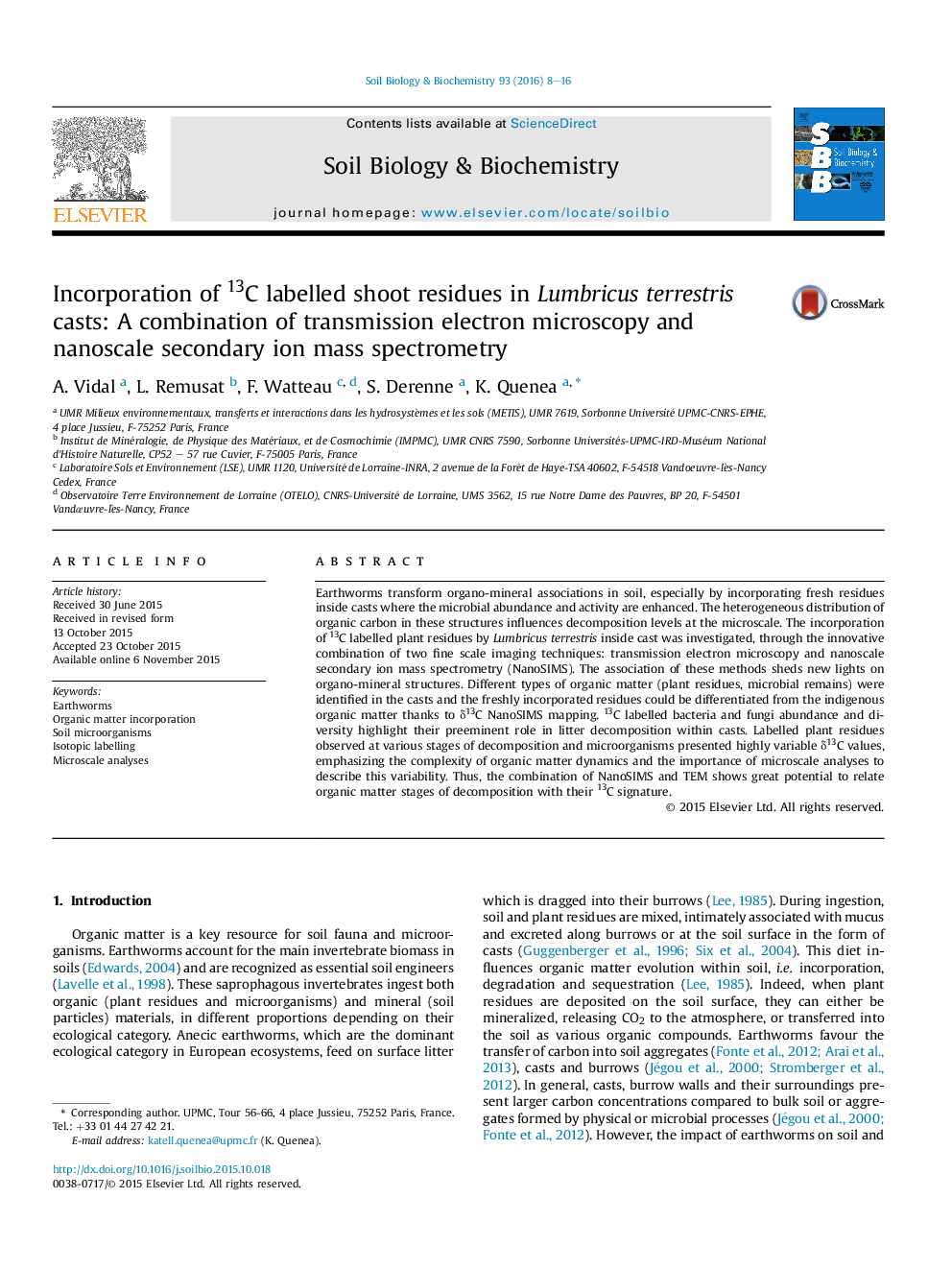| کد مقاله | کد نشریه | سال انتشار | مقاله انگلیسی | نسخه تمام متن |
|---|---|---|---|---|
| 2024240 | 1542591 | 2016 | 9 صفحه PDF | دانلود رایگان |

• 13C labelled litter incorporation by earthworms in casts: a mesocosm experiment.
• TEM allows organic components identification complementary to NanoSIMS images.
• 13C labelled plant residues, bacteria and fungi are identified in casts.
• Plant residues in the casts exhibit various decomposition stages.
Earthworms transform organo-mineral associations in soil, especially by incorporating fresh residues inside casts where the microbial abundance and activity are enhanced. The heterogeneous distribution of organic carbon in these structures influences decomposition levels at the microscale. The incorporation of 13C labelled plant residues by Lumbricus terrestris inside cast was investigated, through the innovative combination of two fine scale imaging techniques: transmission electron microscopy and nanoscale secondary ion mass spectrometry (NanoSIMS). The association of these methods sheds new lights on organo-mineral structures. Different types of organic matter (plant residues, microbial remains) were identified in the casts and the freshly incorporated residues could be differentiated from the indigenous organic matter thanks to δ13C NanoSIMS mapping. 13C labelled bacteria and fungi abundance and diversity highlight their preeminent role in litter decomposition within casts. Labelled plant residues observed at various stages of decomposition and microorganisms presented highly variable δ13C values, emphasizing the complexity of organic matter dynamics and the importance of microscale analyses to describe this variability. Thus, the combination of NanoSIMS and TEM shows great potential to relate organic matter stages of decomposition with their 13C signature.
Journal: Soil Biology and Biochemistry - Volume 93, February 2016, Pages 8–16